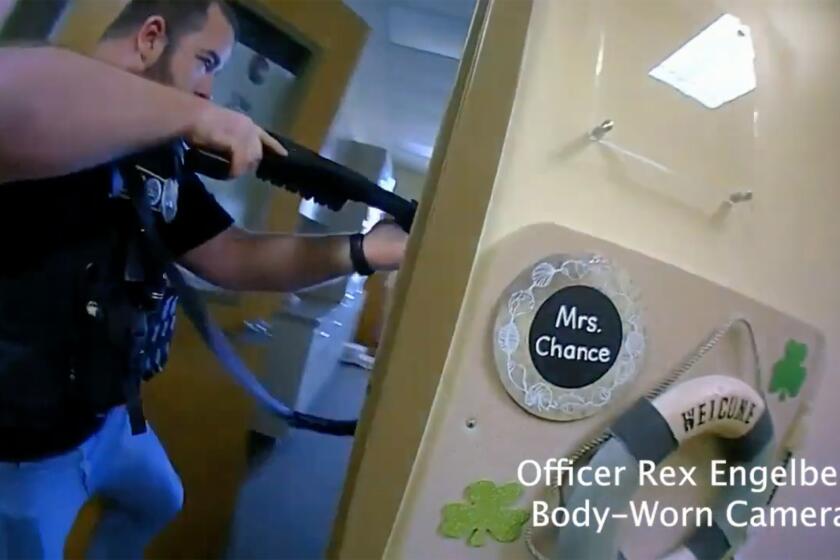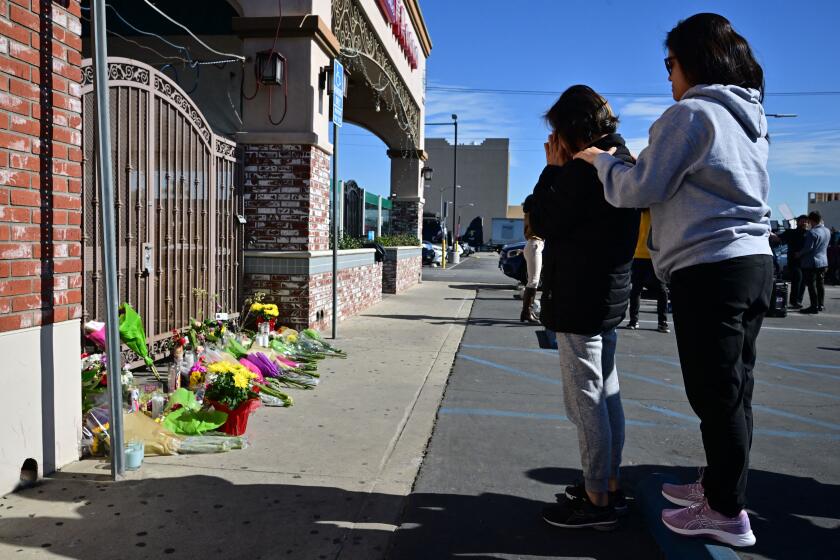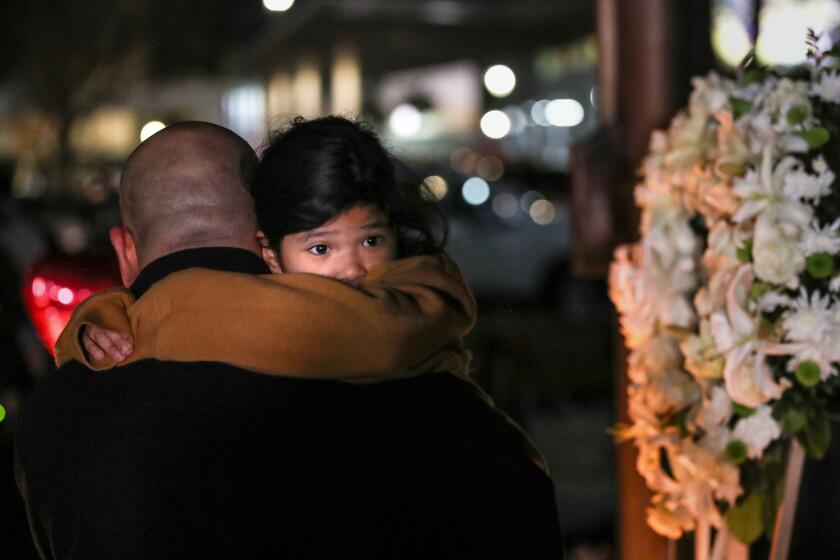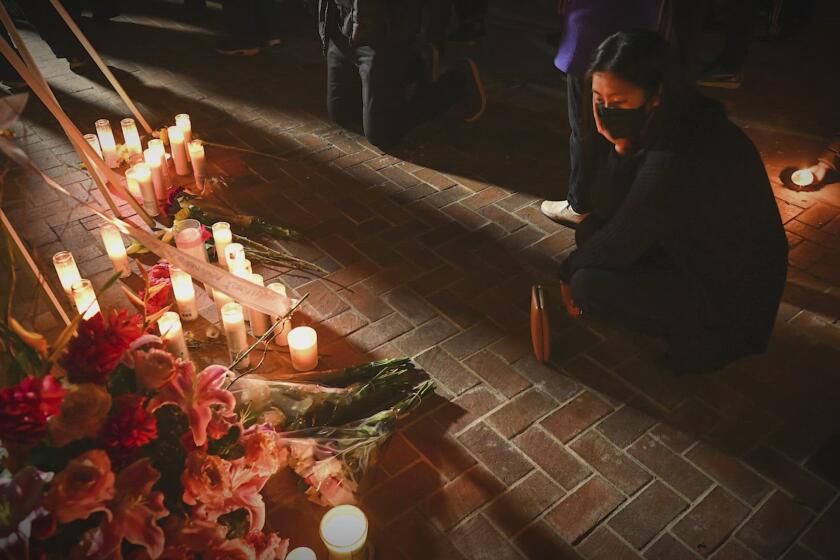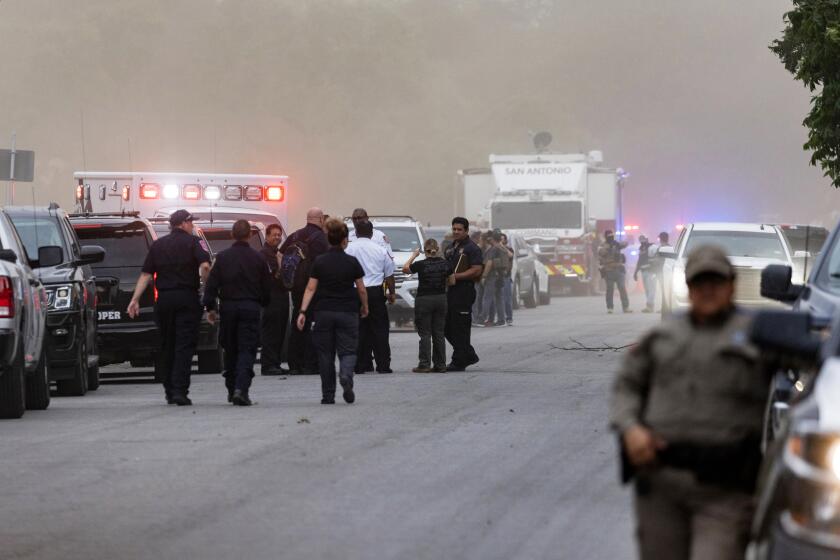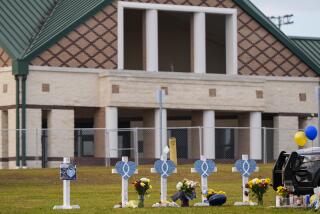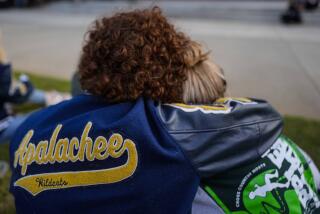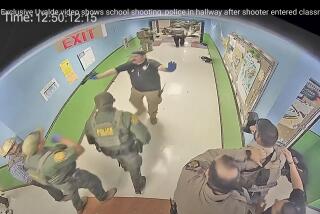‘Let’s go!’: Video from Nashville shooting shows officers rushing to end shooter’s deadly prowl
Nashville police released body-camera footage of officers responding to a shooting at a private Christian school that left three children and three staff members dead.
As Metro Nashville Police Officer Rex Engelbert approached the doors of Covenant School on Monday morning, he screamed for his fellow officers to hurry up.
Another officer already stood to his left, but Engelbert wanted more to join as they entered the private Christian school where a heavily armed suspect was shooting children and staff.
“Let’s go!” Engelbert screamed a second time as he unlocked the door and hurried inside.
Less than 24 hours after the nation’s latest mass shooting left three schoolchildren and three adults dead, authorities released haunting video capturing both the attacker’s chilling prowl through the building and the responding officers’ rush to end it.
School surveillance cameras recorded the shooter pulling up in a Honda, shooting through a set of glass doors and crawling inside to gain access, and then pacing through hallways and classrooms with an assault weapon drawn.
The body cameras of Engelbert and a second officer captured them hurrying into the building, clearing rooms and then shooting the suspect dead on the school’s second floor.
Audrey Hale, 28, legally purchased seven firearms and used three of them in the shooting at a Christian school that left six people dead, authorities said.
Nashville police have said the first 911 call came in at 10:13 a.m. and officers “engaged” the suspect at 10:27 a.m.
Much remains unknown about the 14 minutes in between.
Still, the swift release of the video provided some immediate transparency around the police response — which is the subject of intense scrutiny after every such incident.
Because any American city or small town could be the scene of the next mass shooting, the way police agencies respond has become a science all its own.
Nationally accepted best practices call for officers to rapidly enter buildings where active shooters are located so they can stop the carnage as quickly as possible; every police officer in the country knows that — or should.
And yet, officers do not always follow those protocols.
By consuming news of each mass shooting, we are experiencing what experts call secondary and collective trauma. And as our bodies are sending us signals, experts suggest that we start to pay attention.
In perhaps the most glaring example, police officers in Uvalde, Texas, waited more than an hour to enter a classroom and kill a shooter who had unleashed a barrage of bullets at an elementary school there last year — with devastating results.
Parents and others at the scene immediately grew angry with officers for not acting more quickly, and subsequent reviews, including one from Texas State University, found that some of the 19 children and two adults who were killed might have been saved if they’d received care sooner.
In Nashville, the story has been different — with the police response receiving initial praise from officials and tactical experts who were able to review the body-camera video.
“The tactics displayed in that video were just spot on. You really couldn’t ask for a much better response,” said Gregory Shaffer, a former member of the FBI’s Hostage Rescue Team who now consults on active shooter prevention tactics.
“From what I have seen, this is just a textbook example of a proper response,” said Travis Norton, who leads a team that studies active shooter incidents for the California Assn. of Tactical Officers.
When your child asks about the recent mass shootings in California, it might be hard to find the right words. We asked experts to weigh in with guidance on how to provide both comfort and clarity.
While it’s unclear how long it took officers to arrive on scene or how much time elapsed from the arrival of the first officers to the first police entry, the video does show that Engelbert was inside about a minute after stepping out of his car.
“The kids are all locked down, but we have two kids that we don’t know where they are,” a staff member who met him on the sidewalk said.
“Yes, ma’am,” Engelbert responded.
Over his radio, another officer can be heard saying he is making entry from another door.
After Engelbert was handed a set of keys, he swiftly entered the building with other officers and began clearing rooms one by one, the video shows. A fire alarm was sounding in the building, but there were no audible screams or gunshots at first.
Moments later, when the officers heard sounds from the second floor, they rushed there, the video shows.
Engelbert passed other officers with drawn handguns as they entered an atrium, and he quickly fired his rifle four times at the suspect.
Body-camera footage from Officer Michael Collazo shows him rushing through another part of the building — at one point saying, “Go, go, go, go, go!” to another officer with a rifle — before reaching the atrium around the same time as Engelbert.
After Engelbert fired, Collazo advanced and fired four additional shots from his handgun, screaming, “Stop moving!” at the suspect, who was on the ground.
Both Shaffer and Norton, the tactical experts, noted that the released video may not capture every aspect of the response. Tactical failures, which can occur before, during or after the frantic moments just before a suspect is taken down, sometimes become known only later.
The show, airing on ‘L.A. Times Today’ on Spectrum News 1, explores the repercussions of the Jan. 21 shooting in Monterey Park and the ways members of the public have responded to the epidemic of gun violence in California.
However, from what they’ve seen of the response so far, they said, the Nashville officers performed admirably.
The officers’ methodical approach to clearing rooms before hearing any sounds to alert them to the suspect’s location was appropriate, the experts said.
“They start to do a clear of the school. It’s not rushed, but it’s a good pace,” Norton said.
Once they heard noises from the second floor, the officers’ immediate rush in that direction was also appropriate, the experts said, even though it meant exposing themselves to potential danger had there been a second shooter.
“There’s a lot of risk involved, so you have to give those police officers a lot of credit for their bravery,” Shaffer said. “They’re doing exactly what they are supposed to do. They are running to the gunfire.”
In the school atrium, the officers used a controlled number of rounds to “neutralize” the suspect, then remained relatively calm and gave appropriate information and commands over the radio, Norton said.
Questions are again being raised about school preparedness and police response to active shooters after a deadly school shooting in Uvalde, Texas.
The response stood in stark contrast to the one in Uvalde, Shaffer said.
“In Uvalde, everything was done wrong. I mean everything. It was a complete failure of law enforcement,” he said.
“In Nashville, this should reaffirm the public’s faith and trust in police, that they did exactly what they were trained to do, what they should have done,” he added. “Hands down, they saved lives because of their actions, because they didn’t hesitate.”
During a news conference Tuesday, Metro Nashville Police Chief John Drake said he was “impressed” with the officers’ response, which he called “really quick.”
The officers themselves, he said, were “trying to decompress, trying to make sense of all this.”
Times staff writers Terry Castleman and Alexandra E. Petri contributed to this report.
More to Read
Sign up for Essential California
The most important California stories and recommendations in your inbox every morning.
You may occasionally receive promotional content from the Los Angeles Times.

